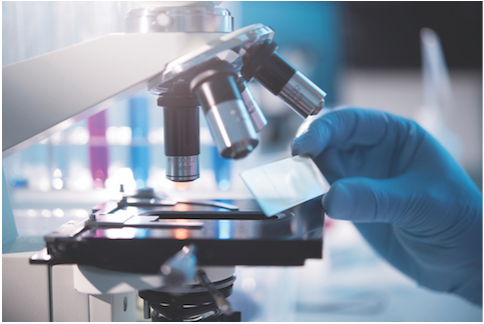AI model shows promise in detecting lung cancer earlier
May 9, 2023
Source: drugdu
 371
371

Lung cancer accounts for more than 20% of cancer deaths in the UK
A new UK study has revealed the potential of using artificial intelligence (AI) to help doctors diagnose lung cancer earlier.
LIBRA, which was led by researchers from the Royal Marsden NHS Foundation Trust, the Institute of Cancer Research, London, and Imperial College London, used data from the CT scans of nearly 500 patients with large lung nodules – abnormal growths – to develop an AI model.
The Royal Marsden Cancer Charity, the National Institute for Health and Care Research, RM Partners and Cancer Research UK also supported the study.
To assess how effective the new model was at predicting cancer, the team used a measure called the area under the curve (AUC). An AUC of one would indicate a perfect model, while 0.5 would be expected if the model was randomly guessing.
The results, which have been published in the Lancet’s eBioMedicine, indicate that the model was able to identify each lung nodule’s risk of cancer with an AUC of 0.87.
The performance improved on the Brock and Herder score – two tests currently used in clinic.
It was also found that the model could help doctors make quicker decisions about patients with abnormal growths that are currently deemed medium-risk by current tests.
When combined with Herder, the researchers’ model was able to identify high-risk patients in this group and would have suggested early invention for 82% of the nodules that went on to be diagnosed as cancerous.
Lung cancer is the leading worldwide cause of cancer mortality, accounting for 21% of cancer deaths in the UK.
Patients diagnosed with early-stage disease can be treated more effectively, but recent data shows over 60% of lung cancers in England are diagnosed at either stage three or four.
The researchers hope the technology will eventually be able to speed up the detection of the disease by helping to fast-track high-risk patients to treatment, and by streamlining the analysis of patient scans.
Dr Benjamin Hunter, clinical oncology registrar at the Royal Marsden NHS Foundation Trust and clinical research fellow at Imperial College London, who is funded by Cancer Research UK, said: “In the future, we hope it will improve early detection and potentially make cancer treatment more successful by highlighting high-risk patients and fast-tracking them to earlier intervention.
“Next, we plan to test the technology on patients with large lung nodules in clinic to see if it can accurately predict their risk of lung cancer.”
Reference:
By editorRead more on
- The first subject has been dosed in the Phase I clinical trial of Yuandong Bio’s EP-0210 monoclonal antibody injection. February 10, 2026
- Clinical trial of recombinant herpes zoster ZFA01 adjuvant vaccine (CHO cells) approved February 10, 2026
- Heyu Pharmaceuticals’ FGFR4 inhibitor ipagoglottinib has received Fast Track designation from the FDA for the treatment of advanced HCC patients with FGF19 overexpression who have been treated with ICIs and mTKIs. February 10, 2026
- Sanofi’s “Rilzabrutinib” has been recognized as a Breakthrough Therapy in the United States and an Orphan Drug in Japan, and has applied for marketing approval in China. February 10, 2026
- Domestically developed blockbuster ADC approved for new indication February 10, 2026
your submission has already been received.
OK
Subscribe
Please enter a valid Email address!
Submit
The most relevant industry news & insight will be sent to you every two weeks.



